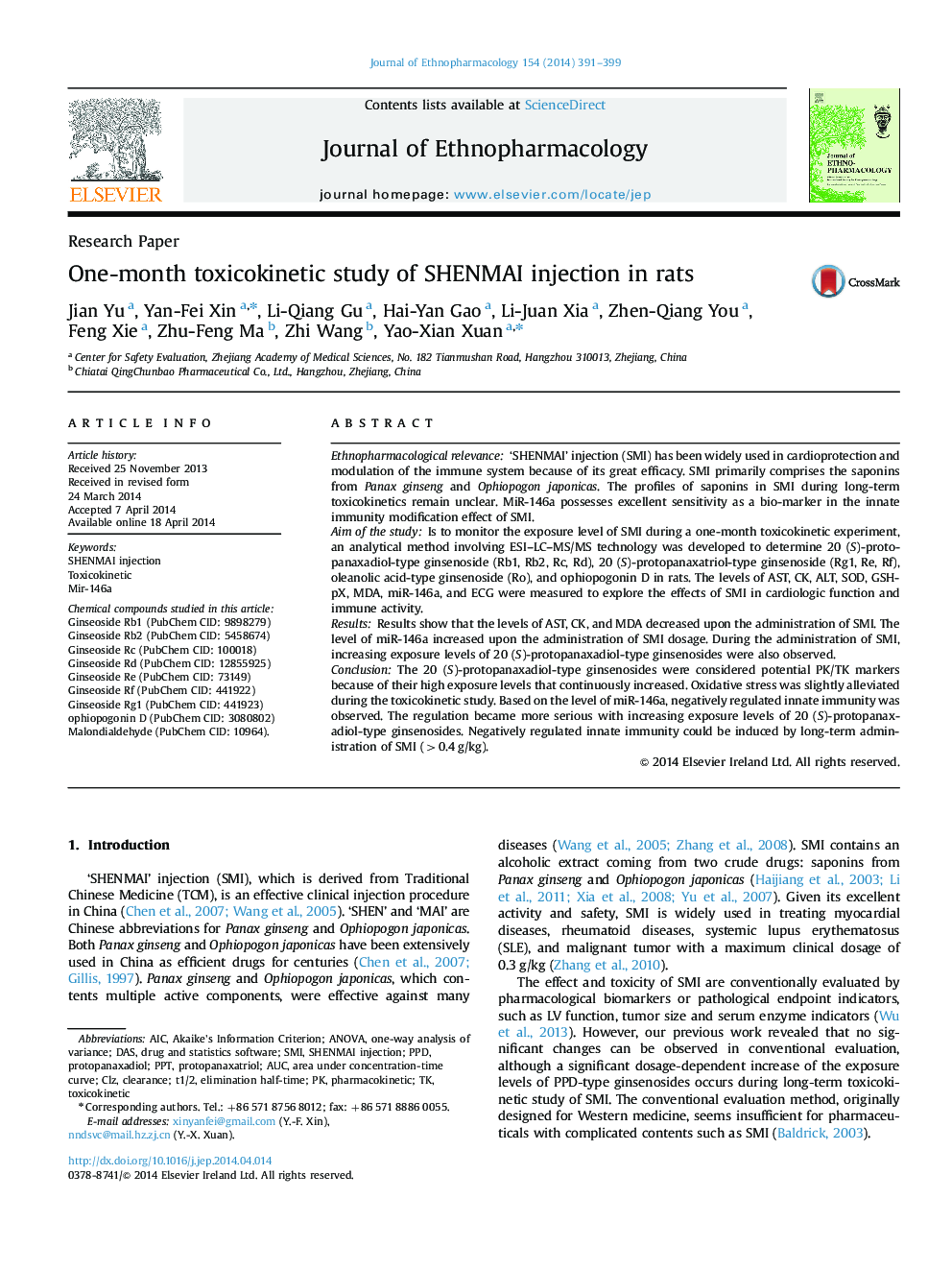| Article ID | Journal | Published Year | Pages | File Type |
|---|---|---|---|---|
| 2545143 | Journal of Ethnopharmacology | 2014 | 9 Pages |
Ethnopharmacological relevance‘SHENMAI’ injection (SMI) has been widely used in cardioprotection and modulation of the immune system because of its great efficacy. SMI primarily comprises the saponins from Panax ginseng and Ophiopogon japonicas. The profiles of saponins in SMI during long-term toxicokinetics remain unclear. MiR-146a possesses excellent sensitivity as a bio-marker in the innate immunity modification effect of SMI.Aim of the studyIs to monitor the exposure level of SMI during a one-month toxicokinetic experiment, an analytical method involving ESI–LC–MS/MS technology was developed to determine 20 (S)-protopanaxadiol-type ginsenoside (Rb1, Rb2, Rc, Rd), 20 (S)-protopanaxatriol-type ginsenoside (Rg1, Re, Rf), oleanolic acid-type ginsenoside (Ro), and ophiopogonin D in rats. The levels of AST, CK, ALT, SOD, GSH-pX, MDA, miR-146a, and ECG were measured to explore the effects of SMI in cardiologic function and immune activity.ResultsResults show that the levels of AST, CK, and MDA decreased upon the administration of SMI. The level of miR-146a increased upon the administration of SMI dosage. During the administration of SMI, increasing exposure levels of 20 (S)-protopanaxadiol-type ginsenosides were also observed.ConclusionThe 20 (S)-protopanaxadiol-type ginsenosides were considered potential PK/TK markers because of their high exposure levels that continuously increased. Oxidative stress was slightly alleviated during the toxicokinetic study. Based on the level of miR-146a, negatively regulated innate immunity was observed. The regulation became more serious with increasing exposure levels of 20 (S)-protopanaxadiol-type ginsenosides. Negatively regulated innate immunity could be induced by long-term administration of SMI (>0.4 g/kg).
Graphical abstractFigure optionsDownload full-size imageDownload high-quality image (194 K)Download as PowerPoint slide
